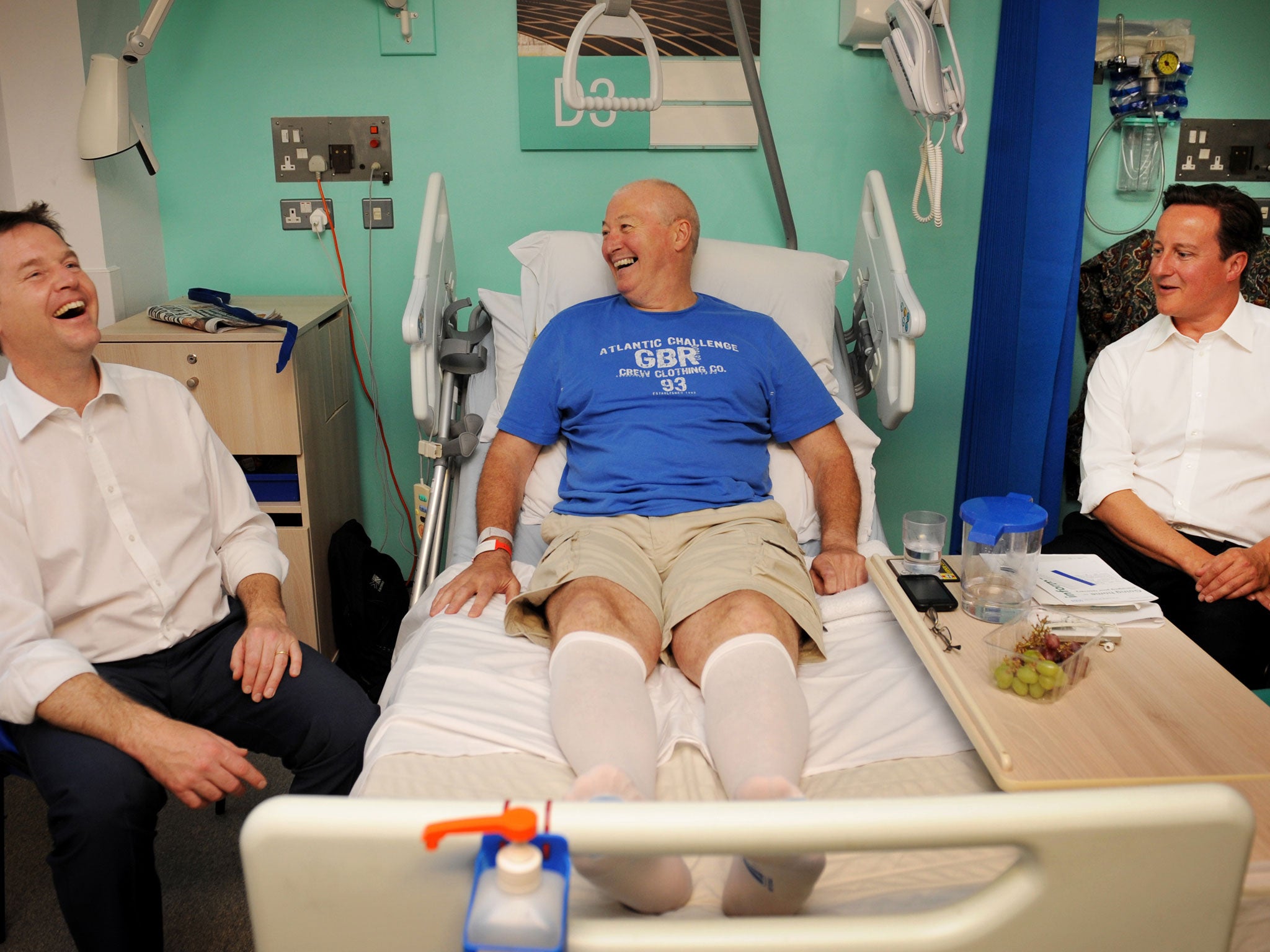NHS press officers have a bad reputation. Perhaps it's time they had their own PR campaign
At a time when Britain's public services are more cash-strapped than ever, PR for the NHS might seem like an unjustifiable expense. It isn't, it's vital

NHS press officers have had some pretty bad PR recently. Apparently they cost the NHS millions and prevent journalists from questioning NHS bosses at conferences where they are, ironically, promoting openness and transparency.
The emergence of slick ‘corporate’ communications, not just within the NHS, but throughout other publicly-funded government and arms-length agencies is a worrying trend. At the Science Media Centre, where we respond to some of the most controversial health and science issues that hit the headlines, we have experienced this spin at the sharp end: NHS trusts reluctant to speak to the media on the latest health scare, and press officers warning that experts can only take part in press briefings if they’re not “on camera”. This need to take a risk-averse approach for fear of upsetting those in charge or straying too far from the agreed line is all too familiar.
Some press offices are defensive – secretive even – to the detriment of truth and transparency, and this culture runs deep in parts of the NHS. There is no place in a publicly-funded service for obstructiveness and if the NHS is spending millions on PR deliberately or inadvertently encouraging a lack of openness, we should shine a bright light on it. That’s what the best investigative journalism is all about. But demonising all NHS press officers as spin doctors is not the whole story.
The very best press officers in the NHS do a crucial job that is worlds apart from simply making their organisation look good. They field hundreds of requests from journalists on a daily basis, work to ensure that the public get accurate information on the latest vaccination and screening programmes, and encourage doctors and managers to speak to the media about vital public health issues that affect us all; the so-called silent killers like cancer and cardiovascular disease, where early screening and detection improve survival rates and save the NHS money down the line.
One press officer told me that in a single day their list of jobs included setting up local a newspaper campaign encouraging men to be screened for aortic aneurysms, tracking down an unhappy patient via Twitter to put them in touch with the right surgical team, and managing a sensitive case where journalists were about to breach patient confidentiality after a child had passed away. This is not the stuff of Malcolm Tucker. This is an essential public service.
Newspapers are in economic freefall, and journalists have less time – and fewer colleagues – than ever. The experienced and responsible press officer bridges that ever-widening gap. Their work also benefits doctors and nurses themselves. Well organised and informative public health campaigns mean fewer people queuing in A&E for minor ailments or at the GP asking for another round of antibiotics for a cold for which they’re no use anyway, and during major incidents like the 2005 London bombings, it’s press officers who coordinate the overwhelming number media and relative enquiries, allowing medical staff to carry on with their job undisturbed.
I want to know what the NHS is doing with my money, but I don't want my local surgeon to be scribbling notes to journalists between operations. Good press officers also carry out communication within their own organisations, allowing staff to share information, expertise and support, and informing them of the latest best practice guidance.
If we return to the 1980s when NHS press officers were few and far between, who do we expect to handle all of these jobs? To manage the demands of a hungry news media, and an increasing number of freedom of information requests for that matter?
PR has always had a bad name, but not all press officers are spin doctors, and to suggest so shows a lack of understanding of the complexities of the role. As with all professions, PR is a real mixed bag, and good journalism is always better than bad PR. But accurate, evidence-based and informative PR very definitely serves the public interest better than bad journalism. Does the NHS really need spin doctors? Probably not. But does it need good press officers? Absolutely.
Join our commenting forum
Join thought-provoking conversations, follow other Independent readers and see their replies
Comments
Bookmark popover
Removed from bookmarks